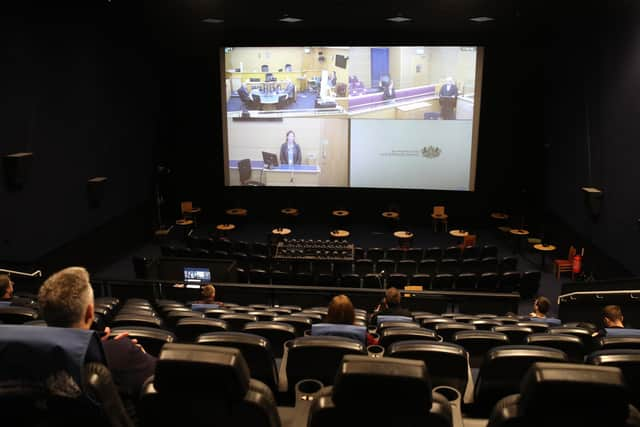The human face of justice in the dock - Andrew Stevenson
Thanks to this seemingly unstoppable shift to online litigation, subject matter jurisdiction is now a practicable option to the current system of allocating civil cases based on a territorial link between subject matter or parties and their nearest sheriff court. But do we really want this disconnection to prevail?
Jurisdiction at sheriff court level in Scotland has traditionally been territorial. A dispute about a servitude in Pitlochry is heard in Perth Sheriff Court. A divorce action between spouses in Melrose is heard in the court at Selkirk. This has always been justifiable on the basis of the physical proximity of the court to the subject matter or at least one of the parties (usually the person being sued). The whole foundation for this theory, however, assumes people (parties, lawyers and witnesses) will turn up physically in a court building. Even a Scotland-wide forum such as the Lands Tribunal will try to have a physical hearing in a venue nearest to those likely to be giving evidence.
Advertisement
Hide AdAdvertisement
Hide AdRemote litigation breaks this connection and completely undermines the necessity of adopting this model. If the Pitlochry servitude dispute or Melrose divorce is to be resolved by Webex or telephone conference calls, the location of the governing sheriff court becomes entirely irrelevant. It might as well be managed and heard by a sheriff sitting in an office in Edinburgh or, less expensively and with better parking, premises such as the Office of the Public Guardian on the outskirts of Falkirk, or the Accountant in Bankruptcy in Kilwinning. The sheriff could even work from home. Court buildings could be closed, sold and turned into flats or nightclubs.


True, such a model can offer benefits. It facilitates the creation of a specialized judiciary similar to that characteristic of tribunals. It recognises that legal practice has become so diversified and fragmented that very few sheriffs are likely to have the breadth of experience and expertise to deal confidently with every case, criminal, civil or commissary, that arises in their own court. In larger places, such as Glasgow, there has been specialisation for decades. Remote working processes now allow that model to be exported elsewhere.
The existence of the All Scotland Sheriff Personal Injury Court illustrates that subject matter jurisdiction can be put into effect. It is not hard to envisage an All Scotland Commercial Court or similar bodies in consumer law and in some types of family case. The Courts Reform (Scotland) Act 2014 opened the door to all-Scotland specialist courts and sheriffs. Commissary work could be undertaken centrally too and we can expect that new tribunals will be established to attend to specific areas of work currently heard in the sheriff court.
One can imagine there being a boundary dispute sheriff, whose task it would be to hear all such cases from throughout Scotland. Another could hear all adoptions. This would give rise to a consistency of approach and an economy of scale; since the law is the same whether the boundary or child be in Portlethen or Portpatrick, energy would not have to be spent addressing the sheriff on the basic legal authorities, with time and cost savings that can already be observed in the operation of tribunals.
Allocation of cases would be through a central hub, which could use algorithms to save even more money in distributing the caseload by subject matter. Territorial jurisdiction would be an obsolete concept.


So, however, will be what Susskind describes as the human face of justice, an attribute of local physical courts that we abandon at our peril by embracing online litigation. Remoteness is a concept that rarely carries favourable connotations.
Andrew Stevenson is Secretary, Scottish Law Agents Society